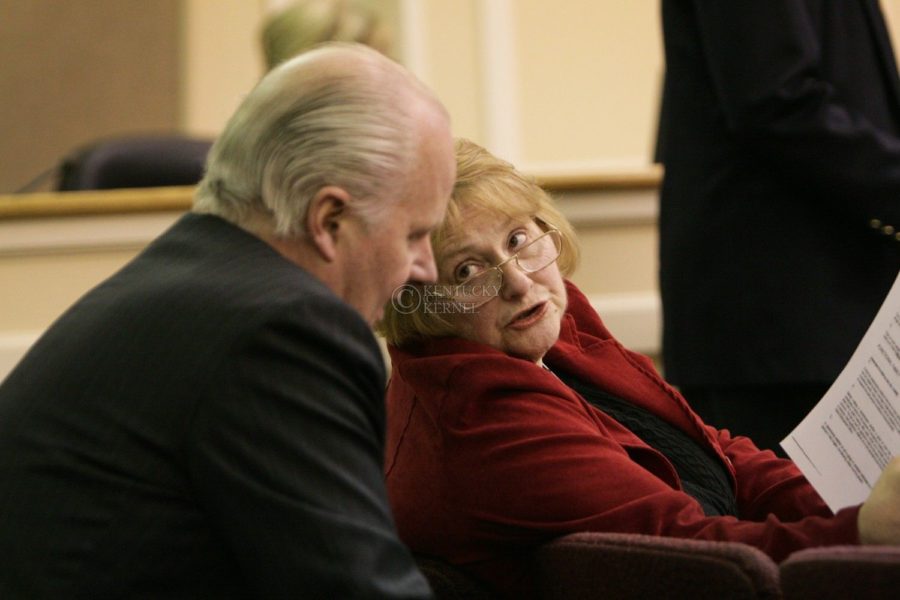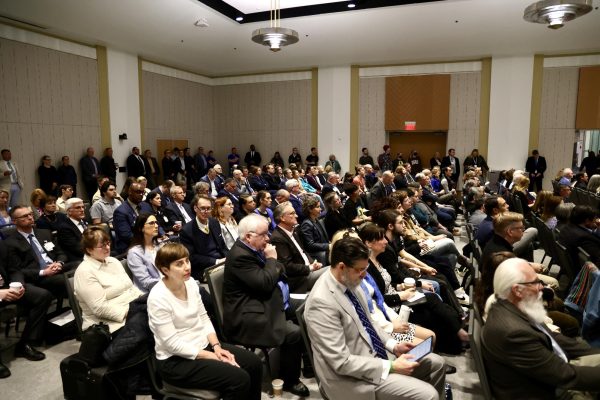Definition of ‘family’ remains up in the air
February 17, 2010
For residents living near UK, the definition of family could forever affect how many students will live in the neighborhoods surrounding the university.
The Lexington-Fayette Urban County Government Council met Tuesday to discuss the definition of family and the density issues affecting the districts in the greater Lexington area.
The definition of family, according to the original housing ordinance, is that of a person who lives alone, or two or more persons living together as a single housekeeping unit who use common kitchen facilities. This does not include fraternity or sorority houses, community residences, boarding or lodging houses or other similar buildings.
Many who reside in the neighborhoods surrounding UK do not meet the above description.
Council members discussed how Building Inspection is currently sending out notices to property owners who they’ve received complaints about regarding the number of adults living together.
“The thing we’re dealing with isn’t about students,” said 3rd district councilwoman Diane Lawless. “It’s about density.
“In retrospect, instead of this being a student housing task force, it should have been called a rental property task force,” she said.
Lawless discussed with the council an ad she saw on Craigslist, where a renovated property on Westwood Court was listed. The home had nine bedrooms, four baths, allowing up to 18 occupants, perfect for a fraternity or sorority, the ad said.
“This is not proper single-family use,” Lawless said. “I agree we need to put a number on what is reasonable for single-family use. This doesn’t just impact students.”
The voice of the students, however, was absent. When the order of agenda items was changed, Student Government President Ryan Smith, who has attended many of the meetings, had to leave early for a midterm.
Smith feels students have been caught in the middle and the only alternative the city is proposing will affect students in a negative way.
The city has not enforced the statutes for a long time, Smith said, and now students are bearing the brunt of the punishment.
“(Students) are doing everything legal they know,” he said. “Why should they be punished?”
Grandfathering needs to be in place to allow existing homes in zones R1 and R2, which include student-populated streets, to be maintained as is, he said.
“They need to prevent this issue from becoming more severe and prevent a mad dash to find housing (elsewhere),” Smith said.
Although he wasn’t able to speak to the council members in person, Smith plans to meet with Lawless on Wednesday to discuss his concerns.
Lawless realized students had class and that others had taken time off from work to attend the meeting. She plans to hold a special planning committee meeting on March 2 at 11 a.m. to further discuss possible ordinance amendments.
Smith said it is important for students to be aware of the housing situation and what is happening during these council meetings. While he said he plans on always having the students represented by either himself or someone in Student Government, students should be at the meeting to voice their concern.
“It sends a stronger message if students are there,” he said.






















































































































































